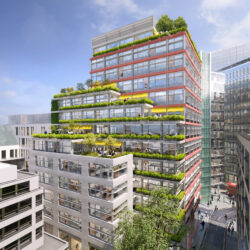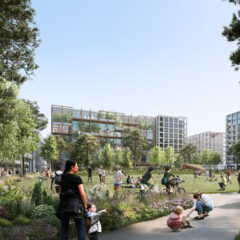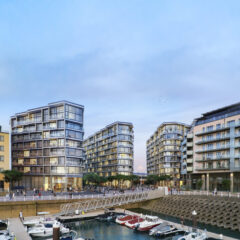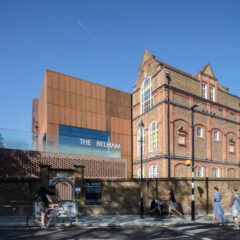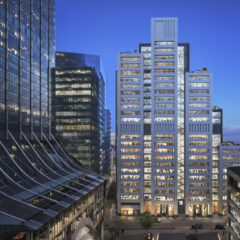Materials Passports are digital data sets which describe characteristics of materials and components in products and systems, giving them value for present use, recovery and future reuse. Edenica will act as a pilot project for their implementation and is the first scheme within the City of London to be designed as a storage bank where materials are held for future reuse.
BauMont Real Estate Capital’s Managing Director, Natalie Harrison, commented: “Our philosophy when it comes to development and refurbishment projects it to take a ‘use less, waste less’ approach. We engage sustainability specialists at the outset of our projects to ensure our desire to deliver buildings with best-in-class ESG credentials is taken into account in the early stages of design. This leads to better collaboration and promotes innovation, a good example of this being Waterman’s Material Passports initiative being delivered at Edenica, which looks beyond policy, setting a new precedent for London.”
Working alongside project manager, Third London Wall, our Sustainability team has set out the pathway for procurement to ensure the Materials Passports contain key characteristics of selected building materials held in a centralised database. This can be used to provide reports on maintenance and potential future reuse over the life of the building and beyond, maximising both material life and whole life value.
Discussing the impact of Materials Passports, YardNine’s Co-founder, Maxwell Shand, said: “Underpinned by low operational energy and an innovative approach to cutting embodied carbon, Edenica will demonstrate what can be achieved when sustainability is central to a scheme’s design ethos. I believe Waterman’s Materials Passports initiative will quickly become widely adopted as ‘best-practice’ for responsible development.”
Just as a regular passport provides personal details of an individual’s identity, Edenica’s Materials Passports will become a snapshot of the building elements’ credentials, providing records of the materials, products, and components that have been used. These records will enable the reuse of materials during the building’s operation or at the end of its life, turning the used materials into valuable resources instead of waste. Materials Passports are a relatively new initiative and are a critical step in bringing a functioning circular economy to the built environment. As a new concept in the UK construction industry, there is no current standardised framework to define the process that should be followed for their production, content or form.
The scheme’s Materials Passports will facilitate the reuse of materials in the coming years by future owners, design teams, manufacturers and contractors. For this to be most effective, the system will be calibrated to enable the constant update and maintenance of information associated with these materials throughout their life cycles.
Waterman’s Sustainability Associate, Anastasia Stella, led the development of Materials Passports at Edenica. She commented: “It is hugely important that, as construction professionals, we continually try to advance and innovate to help tackle the climate emergency. Our Materials Passport initiative shows how even the simplest of concepts can create the potential for a significant reduction in whole-life carbon and optimise re-purposing of materials in the future.”
Our specialists pioneered the methodology behind Materials Passports, using data initially based on input from cost consultants, Arcadis. The information that is included in the Materials Passports derives from the Construction Contractors. The information is based on 3D model, Contractors’ records, products’ specifications, certificates etc.
We are providing technical advice to support the development of an innovative online platform called Circuland which allows the creation, viewing and maintenance of digital Materials Passports across building, development and city levels. The platform will be used for the digital storage and viewing of the development’s Materials Passports, and the database’s structure will follow the RICS NRM classification system level 2 sub-elements (RICS, 2021). This will allow information from the Materials Passports to be interlinked with Post-Completion Circular Economy Statements and Post-Construction Whole Life Carbon Assessments.
Our experts are currently creating a protocol to standardise the process for producing and reporting Materials Passports across the UK, and we are collaborating with CIRCuIT, BRE and City of London on this exciting initiative. By working with policy makers directly, we aim to introduce a standardised template for Materials Passports for all new products which can be provided by manufacturers and suppliers. This will aid the tracking of material usage intensity and enable the industry’s progression towards a fully functional circular economy.






